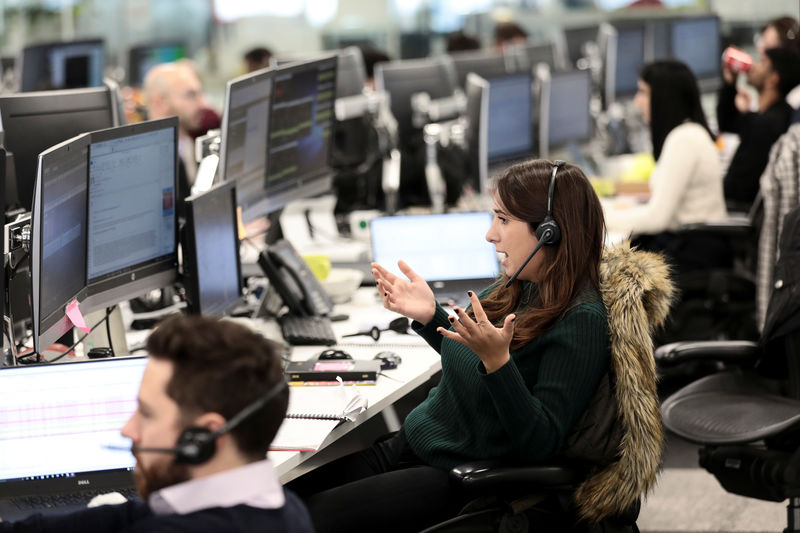By Shashwat Awasthi and Yadarisa Shabong
(Reuters) - London's FTSE 100 surged more than 1% on Friday after two days of selling, as investors turned cautiously optimistic about a Sino-U.S. trade deal and exporter stocks rose after the pound weakened on downbeat U.K. Purchasing Managers' Indexes (PMI) data.
The main index (FTSE) was powered on its best day since late July by trade-sensitive scrips including HSBC (L:HSBA) and miners (FTNMX1770) and further bolstered by internationally-exposed firms such as Unilever (L:ULVR) and Diageo (L:DGE).
The FTSE 250 (FTMC) added 0.6%, though gains were capped by data that showed British business this month suffered its deepest downturn since mid-2016 amid uncertainty around the general election and Brexit.
Further keeping gains in check was a 9% slide in Hochschild Mining (L:HOCM) after its 2020 output targets disappointed, and an 8% drop in thread manufacturer Coats Group (L:COA) after it warned on annual profit.
Hochschild shares endured their worst day since Aug. 2017, while Coats' shares hit their lowest level in two-and-a-half years.
Despite this, the mid-caps enjoyed their fourth straight week of gains, buoyed in recent sessions by polls that point to a likely Conservative Party victory in the Dec. 12 election.
A Conservative victory is seen as more likely to see through Brexit and it was this view that led the FTSE 250 to a more than one-year high earlier this week.
The blue-chip bourse recouped all losses from the past two sessions as mild risk appetite returned after a report that Washington may delay tariffs on Chinese imports even if a deal is not signed by a Dec. 15 deadline.
Furthermore, comments by President Xi Jinping that Beijing wanted to work out an initial trade pact with Washington and a softer pound helped the FTSE handily outperform the broader European benchmark (STOXX).
"Investors are mindful of the trade deal's importance in supporting hopes of a global economic recovery next year," FXTM analyst Han Tan said. "A further escalation in trade tensions would only undermine the world economy's growth momentum while amplifying chatter about a recession."
Trade tensions had flared earlier this week after President Donald Trump threatened to raise tariffs on Chinese imports if no deal was struck, and after the U.S. Senate backed a bill supporting protesters in Hong Kong, which drew Beijing's ire.

Shares in AstraZeneca (L:AZN) advanced as much as 2.8% after the drugmaker won earlier-than-expected U.S. regulatory approval for a leukaemia drug.